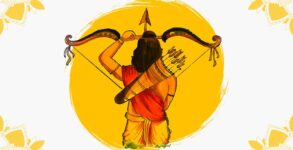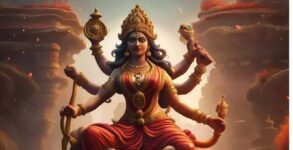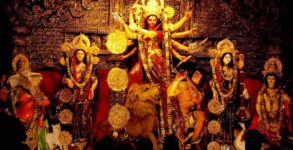Diwali or Deepavali is one of the biggest and most popular Indian festival in the world. Diwali is called the “Festival of Lights”. According to the customs and rituals of different states and regions, we will celebrate with the greatest dedication and happiness.
However, on the main day of Diwali, devotees usually observe the ceremony of Laxmi Pujan or Lakshmi Pooja. Diwali 2020 will be held on November 14, and the five-day Deepavali festival will kick off with Govatsa Dwadashi or Vasu Baras on November 12.
It is closely followed by Dhanteras, which is considered to be the first day of Diwali in many parts of the country.
Many other festivals are also celebrated during Diwali, such as Choti Diwali or Naraka Chaturdashi, Bhai Dooj or Bhau Beej, Bengali Kali Puja, Tamil Deepavali, Govardhan Puja or Annakut Puja, Gujarati New Year, and so on.
Let’s take a look at the Diwali 2020 calendar with full dates of these festivities, shubh muhurat, significance and celebrations.
Diwali Day 1: Govatsa Dwadashi, Vasu Baras, Vagh Baras 2020 Date and Significance
Govatsa Dwadashi is a popular festival that starts Diwali celebrations, especially in the states of Maharashtra and Gujarat where people call it Vasu Baras and Vagh Baras.
In Andhra Pradesh, devotees observe the day as Sripada Vallabha Aradhana Utsav of Sripada Sri Vallabha, at Pithapuram Datta Mahasamsthan. Govatsa Dwadashi is celebrated to honour cows, who are considered sacred in Hinduism. Govatsa Dwadashi is also observed as Nandini Vrat and is of much importance in Shaivism. As mentioned earlier, it is commemorated as Vagh Baras that implies repaying one’s financial debts and is an important day for businessmen. Govatsa Dwadashi 2020 date is November 12 (Thursday). It falls on the twelfth day of the waning moon fortnight (Krishna Paksha) in the Hindu month of Kartika.
Diwali Day 2: Dhanteras or Dhantrayodashi 2020 Date and Significance
Dhanteras or Dhantrayodashi is widely celebrated as the first day of Diwali festival. The word “Dhanteras” is a combination of words “Dhan” meaning “Wealth” and “Teras” meaning “Thirteenth”.
Dhanteras is celebrated on the thirteenth lunar day of Krishna Paksha (dark fortnight) in the Hindu calendar month of Kartika. This year, Dhanteras or Dhantrayodashi Puja 2020 will fall on November 13 (Friday). People worship Lord Dhanvantari, the Hindu God of Medicine, God of Ayurveda and Health. Lord Kuber, the Hindu God of Wealth and Devi Lakshmi, the Hindu Goddess of Wealth, Beauty, Prosperity, Love, Fortune and Success are also venerated.
Other than Dhanteras, people would also celebrate a score of other festivals such as Dhanvantari Jayanti or birth of Lord Dhanvantari who is considered to be an incarnation of Lord Vishnu. Yama Deepam, Kali Chaudas and Diwali Hanuman Puja will also be celebrated on November 13.
Diwali Day 3: Choti Diwali and Main Diwali with Laxmi Pujan 2020 Date and Significance
Diwali in 2020 is definitely an unusual affair for Choti Diwali and main Diwali when Laxmi Pujan, both would be celebrated on the same date. Both festivities will take place on November 14 (Saturday).
Laxmi Puja 2020 will fall on Amavasya, unlike the last time. It is all due to muhurat. Chaturdashi Tithi starts at 05:59 PM on November 13, 2020, and ends at 02:17 PM on November 14, 2020. During this period, Narak Chaturdashi or Choti Diwali will take place. While Amavasya Tithi begins at 02:17 PM on November 14, 2020, and ends at 10:36 AM next day on November 15, 2020. But as we know, Laxmi Pujan takes place at night, and people will celebrate it on November 14 night.
Laxmi Pujan 2020 shubh muhurat is 05:28 PM to 07:24 PM. Among other major celebrations taking place on November 14 are Tamil Deepavali and Bengali Kali Puja. Other festivities include Kedar Gauri Vrat, Chopda Pujan or Sharda Pujan.
Diwali Day 4: Govardhan Puja or Annakut Puja and Balipratipada 2020 Date and Significance
Two main festivals are held on the second day of Diwali or Laxmi Puja. They are Govardhan Puja or Annakut Puja and Balipratipada, falling on November 15, 2020. Govardhan Puja/Annakut sees a mountain of vegetarian food symbolising Govardhan Parvat prepared as a mark of gratitude of Lord Krishna. According to the Bhagavata Puran, Krishna had lifted the mountain on his little finger to save his devotees from reckless torrential rain. As for Balipratipada, the fourth day of Diwali is celebrated to honour the return of Daitya-King Bali to earth.
Diwali Dyuta Krida, an important day celebrating the bond between the wife and husband is also observed by the people. Husbands give gifts to their wives, although in other regions, parents invite a newly married daughter, or son, together with their spouses to a festive meal and give them gifts.
Diwali Day 5: Bhai Dooj, Gujarati New Year and Vishwakarma Puja 2020 Date and Significance
Bhai Dooj, also called by several names Bhai Phonta, Bhardutiya, Bhau Beej celebrates the strong bond between a brother and sister. Brothers travel to their sisters’ household to observe the day. Bhai Dooj Aparahna Time – 01:10 PM to 03:18 PM.
In number of Indian states such as Gujarat, Maharashtra and Karnataka, it is the traditional New Year Day in Vikram Samvat and sometimes called the Bestu Baras or Varsha Pratipada. It falls on November 16. Gujarat New Year starts on Shukla Paksha Pratipada in the month of Kartik. Pratipada Tithi Begins – 10:36 AM on November 15 and ends at 07:06 AM on November 16.
Vishwakarma Puja or Vishvakarma Day is an important festival that is dedicated to Lord Vishwakarma. This regional festival is celebrated on the day after Diwali, though many states observe it on September 17 as per the solar calendar.
Let us celebrate the Festival of Lights with joy and delight. Have a bright and sparkling Diwali with the blessings of Lord Ganesha and Laxmi. May your life be filled with joy, happiness, peace, health, wealth and prosperity.
Happy Diwali to everyone!


















